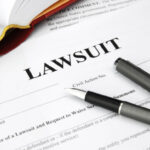Boeing Co. escaped heavy punishment in a U.S. criminal investigation into two deadly crashes of the 737 Max, according to an array of the company’s closest observers on Wall Street and in Washington, D.C.
The $243.3 million fine in a $2.5 billion settlement with the Justice Department was “small,” said JPMorgan Chase & Co. Prosecutors’ attempt to force a change in corporate behavior was “pathetic,” said U.S. Representative Peter DeFazio, who investigated Boeing. And Senator Richard Blumenthal said the deal was a “disgrace” that allowed the company to avoid larger changes.
“This shameful settlement does nothing to change the rotten corporate culture that allowed Boeing to mislead and deceive regulators,” Blumenthal, a Connecticut Democrat, said in a statement Friday.
Boeing’s deal in the waning days of the Trump administration resolved a two-year probe without blaming executives or throttling company finances. The settlement focused narrowly on the actions of two former Boeing employees involved in drafting pilot manuals, and the Justice Department found that “the misconduct was neither pervasive across the organization, nor undertaken by a large number of employees, nor facilitated by senior management.”
The aerospace titan agreed to a single criminal count for misleading U.S. regulators who certified the Max’s design. The charge will be dropped after three years if Boeing complies with the terms of the deferred prosecution agreement filed Thursday in federal court in Texas.

The settlement was a “step that appropriately acknowledges how we fell short of our values and expectations,” Boeing Chief Executive Officer Dave Calhoun told employees in a message after the filing. “This resolution is a serious reminder to all of us of how critical our duty of transparency with our regulators is, and the consequences our company can face if any one of us falls short of these expectations.”
Boeing fell 1.3% to $209.90 at the close in New York. JPMorgan analyst Seth Seifman had predicted earlier that investors wouldn’t be fazed by the pact with prosecutors, “because the fine was small and in part because this is another step in moving beyond the 737 crashes and grounding.”
‘Modest Positive’
The settlement terms are a “modest positive” for Boeing, Seifman said. The Chicago-based company had already established reserves for 70% of its agreement with $1.77 billion in compensation due to airlines and lessors affected by a worldwide flying ban after the crashes.
Based on the agreement, Boeing plans to report a $743.6 million charge with its fourth-quarter earnings later this month. Investors were already girding for a grim quarter, after deliveries of a different jet, the 787 Dreamliner, ground to a halt as mechanics expanded their search for tiny manufacturing imperfections.
The company won’t actually book the cash outflows for the fine and another $500 million for a fund for the beneficiaries of crash victims until the first quarter of this year, said Christopher DeNicolo, an analyst at S&P Global Ratings.
The settlement of the criminal case doesn’t spell the end of Boeing’s legal woes. The U.S. Securities and Exchange Commission and the Federal Aviation Administration are conducting separate probes. Potential settlements in wrongful death lawsuits related to the two Max crashes could amount to $2 billion, said Bloomberg Intelligence analyst Holly Froum.
Flying Ban
The Max was banned from the skies for 20 months, the longest jetliner grounding in U.S. history, while the FAA and regulators in other nations oversaw design changes to address flaws in a flight-control system and other problems revealed in investigations. The FAA lifted its grounding on Nov. 18, provided that airlines complete a list of repairs and put pilots through simulator training.
The flight-control system wasn’t the only fault that came to light in the Max. The FAA told Congress in 2019 that Boeing’s decision to sell most Max aircraft with a malfunctioning cockpit warning light was a violation of federal regulations. The warning system was designed to alert pilots to the very problems that contributed to both accidents.
The FAA hasn’t commented on whether it will bring a case against the company, but similar alleged violations have prompted the agency to seek fines and other penalties in the past.
A possible civil enforcement action by FAA against Boeing is also looming in the background. The company agreed in 2015 to pay $12 million to settle numerous violations involving manufacturing breakdowns and other issues unrelated to the Max.
Wrist Slap
As for the Max, a probe by the House Transportation and Infrastructure Committee revealed numerous points during the design process when Boeing should have identified shortfalls, said DeFazio, the U.S. Representative who oversaw the Congressional investigation.
“This settlement amounts to a slap on the wrist,” the Oregon Democrat said in a statement. “From where I sit, this attempt to change corporate behavior is pathetic and will do little to deter criminal behavior going forward.”
Was this article valuable?
Here are more articles you may enjoy.

 Inflation Contributes to Rising Loss Costs for US Commercial P/C Insurers: Fitch
Inflation Contributes to Rising Loss Costs for US Commercial P/C Insurers: Fitch  CoreLogic Report Probes Evolving Severe Convective Storm Risk Landscape
CoreLogic Report Probes Evolving Severe Convective Storm Risk Landscape  Travelers Survey: Distracted Drivers Making US Roads More Dangerous
Travelers Survey: Distracted Drivers Making US Roads More Dangerous  Supreme Court Allows More Transport Workers to Bypass Arbitration and Sue Employers
Supreme Court Allows More Transport Workers to Bypass Arbitration and Sue Employers 